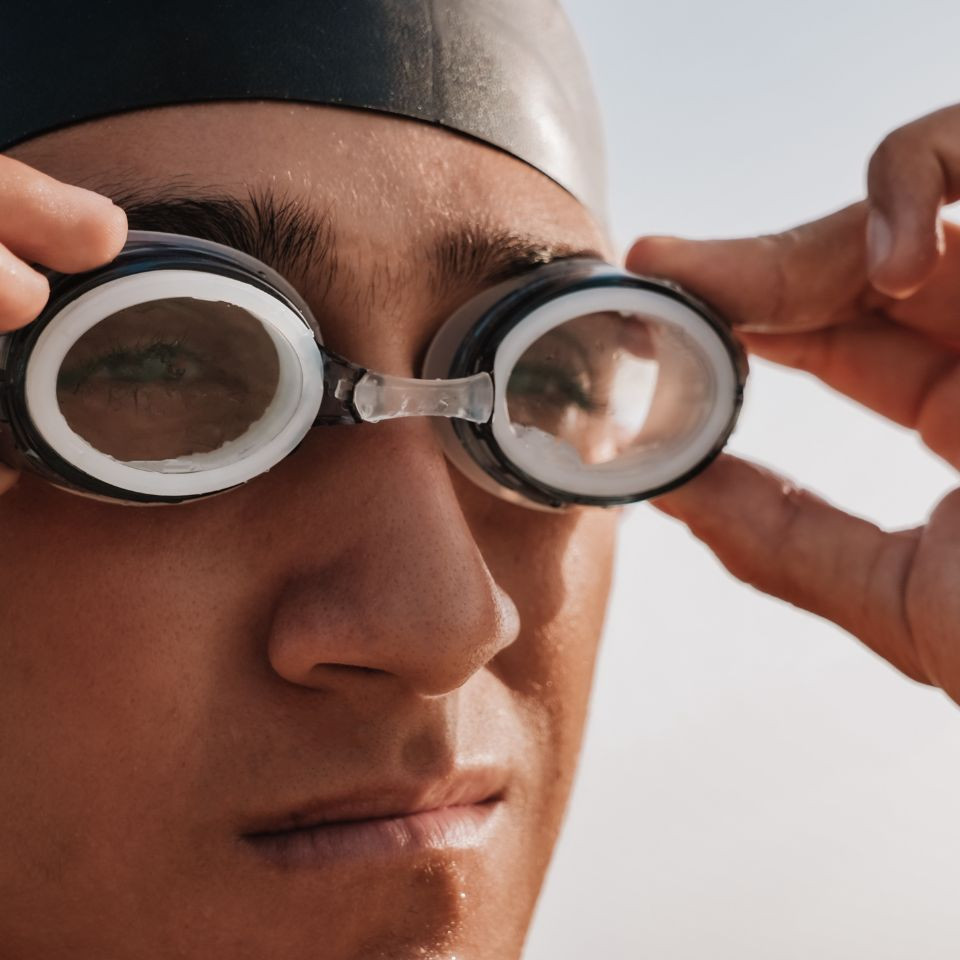Decoding Your Rx: How to Calculate Your Prescription for Swim Goggles
ou’ve got your eyeglass prescription in hand, and you’re ready to order those game-changing
Understanding Your Eyeglass Prescription
Your eyeglass prescription typically contains several abbreviations and numbers. Let's break down the most common ones:
- OD (Oculus Dexter): Refers to your right eye.
- OS (Oculus Sinister): Refers to your left eye.
- SPH (Sphere): This is the main power of the lens, indicating the degree of nearsightedness (-) or farsightedness (+). This is the most crucial number for choosing standard
prescription swim goggles - CYL (Cylinder): This indicates the amount of astigmatism, a common condition where the eye's curvature is irregular.
- AXIS: This number (between 1 and 180) indicates the orientation or angle of your astigmatism.
- ADD (Reading Add Power): This is for multifocal or bifocal lenses, indicating the added magnifying power for reading. This value is generally not used for
swimming goggles
Step-by-Step: Translating Your SPH for Swim Goggles
Most standard
- Locate Your SPH Value: Find the "SPH" column for both your OD and OS eyes.
- Identify the Sign: Note whether the SPH value is positive (+) for farsightedness or negative (-) for nearsightedness. Most commonly,
swimming goggles - Choose the Closest Available Diopter:
Prescription swim goggles - For Nearsightedness (Negative SPH): It's generally recommended to round down to the nearest 0.5 diopter. For example, if your SPH is -2.75, you would typically choose a -2.50 lens. If your SPH is -2.25, you would choose -2.00. A slight under-correction can often feel more comfortable in the water.
- For Farsightedness (Positive SPH): If you find
swimming goggles prescription swim goggles
- Consider Each Eye Separately: If your OD and OS SPH values are different, you will need to select different diopter strengths for each lens of your
swimming goggles
Example:
- OD SPH: -3.25 Choose -3.00 for the right lens.
- OS SPH: -2.75 Choose -2.50 for the left lens.
Dealing with Cylinder (Astigmatism)
Standard off-the-shelf
- Mild Astigmatism (CYL up to -0.75): Many people with mild astigmatism find that standard spherical correction is sufficient for
swimming goggles - Moderate to High Astigmatism (CYL -1.00 or higher): If your astigmatism is significant, you may experience residual blur with standard spherical goggles. In this case, you have a few options:
- Try Spherical Correction: You can still try the spherical equivalent, rounding down your SPH. For some, this might provide enough clarity.
- Consult a Specialist/Custom Goggles: For optimal vision with significant astigmatism, you might need to look into custom-made
prescription swim goggles - Spherical Equivalent Calculation (with caution): For a rough approximation, you can calculate the "spherical equivalent" by taking half of your CYL value and adding it to your SPH.
- Formula: SPH + (CYL / 2) = Spherical Equivalent
- Example: If SPH is -3.00 and CYL is -1.00, the spherical equivalent is -3.00 + (-1.00 / 2) = -3.00 - 0.50 = -3.50.
- Important Note: Use this method with caution and understand it's an approximation. It's often still best to round down the SPH value for comfort in
swimming goggles
Important Considerations
- No ADD Power: As mentioned, the ADD power on your prescription is for reading vision and is not typically used for
swimming goggles - Pupillary Distance (PD): While less critical for off-the-shelf
swimming goggles - Trial and Error: Sometimes, finding the perfect
prescription swim goggles - Consult an Optician: If you're unsure about your prescription or how to choose the right strength, always consult with an optometrist or optician. They can provide personalized advice.
Armed with this knowledge, you can confidently decode your eyeglass prescription and select the ideal
Prescription Swim Goggles – Sports Goggles – Ski Goggles
LEADER IN PRESCRIPTION GOGGLES AND GLASSES
Kids RX Swim Goggles – Adult RX Swim Goggles – Prescription Sports Goggles - RX Ski Goggles

 Canadian Dollar (CAD)
Canadian Dollar (CAD)
 Euro (EUR)
Euro (EUR)
 British Pound (GBP)
British Pound (GBP)







